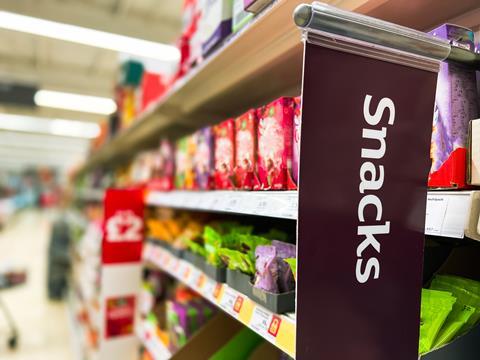
Retail leaders have warned Wes Streeting it will cost supermarkets “tens of millions” of pounds to start providing the data needed for his new healthy food standard.
The government set out plans for the introduction of compulsory mandatory health reporting by all large food companies, as well as the introduction of mandatory targets, under Streeting’s 10-year plan for the NHS in July.
However, despite supermarket pressure being a factor in the government pushing ahead with the proposals, retail leaders are urging ministers not to introduce mandatory targets until all major food companies are in a position to report comparable data.
This week Nesta, the nudge body that has been instrumental in helping the government draw up a model for the plans, urged ministers to bring in targets for the major supermarkets first. Large out-of-home companies have been given more time time to start collecting data.
It claimed the government’s proposals were “relatively low cost” for supermarkets and feasible to bring in “in the near term.” With the sector responsible for 80% of the nation’s calorie intake, the government should push ahead swiftly with targets for the sector, it added.
In contrast Nesta, which claims its plans could reduce obesity by nearly a quarter and save the NHS £20bn a year, found even the biggest takeaways and restaurant chains did not currently have the same advanced data monitoring systems as the UK’s biggest supermarkets. This meant the policy should be introduced in phases, it claimed.
Two-tier system fears
However, retail leaders urged ministers not to introduce a two-tier system and claimed Nesta had hugely underestimated the investment needed to be made by retailers.
While Tesco, Sainsbury’s, Morrisons and Asda currently produce an annual report on the healthiness of their sales, the BRC said this was far from a ready-made solution for the introduction of targets.
“Those retailers that have already voluntarily begun reporting on the health of their products have found it to be an absolutely mammoth task,” said BRC deputy director of food Andrea Martinez-Inchausti, who added it would take several years before adequate systems were in place to allow targets.
“A lot of our members have had conversations with Nesta and we believe that within the methodology they are suggesting there is quite a lot of naivety and a lot of assumption about how quickly this data can be generated.
“The level of data currently gathered by supermarkets varies a lot, and while some of them are reporting for others they may have some internal analysis of some of their own-brand products, but that’s about it. What about a retailer like Ocado, which is much smaller than the likes of Tesco?
“Nesta is underestimating how hard it is by suggesting that it will be easy for supermarkets to generate this data.”
She added: “The BRC is neutral over whether mandatory reporting should go ahead. We have some members who are for it and others who have remained neutral but if it does go ahead it must be properly thought through and that includes thinking how the information will be applied to targets.”
Nesta has recommended that targets are set using a sales-weighted average score using the Nutrient Profile Model across the whole portfolio of food sold.
Its proposed system translates NPM scores into a scale from 0-100 with higher numbers representing healthier businesses, using a method developed by the University of Oxford.
However, its push for the government to press ahead with targets comes with a controversial review of the NPM, shelved under the Tories, having been revived by Labour. Supermarkets fear it could see thousands of products reclassified as HFSS, because of changes to sugar intake recommendations since the profile was first introduced in 2004.
Martinez-Inchausti said: “We are waiting to see what happens with the review of the NPM and until that happens it wouldn’t be right for the government to rush ahead with a half-baked system of reporting and targets that only covered supermarkets and ignored other sectors.”
Rebecca Tobi, head of business information at the Food Foundation, agreed there should not be a two-stage process for reporting and targets.
”The UK’s food industry urgently needs a level playing field so that first movers are not penalised commercially and to ensure the entire market moves in the right direction,” she said. “So it’s absolutely critical that forthcoming regulation on mandatory reporting and target setting applies to all major food businesses.
“The out-of-home sector and particularly fast food restaurants have for many years been falling far behind other sectors in this respect, with a real lack of transparency on healthy sales data and a sector-wide failure to set SMART targets for shifting sales towards healthy and more sustainable products.
“With the out-of-home sector contributing a large proportion of daily calories for a large number of us in the UK, they must be included in any regulation aiming to improve our food environment and diets.”



















No comments yet